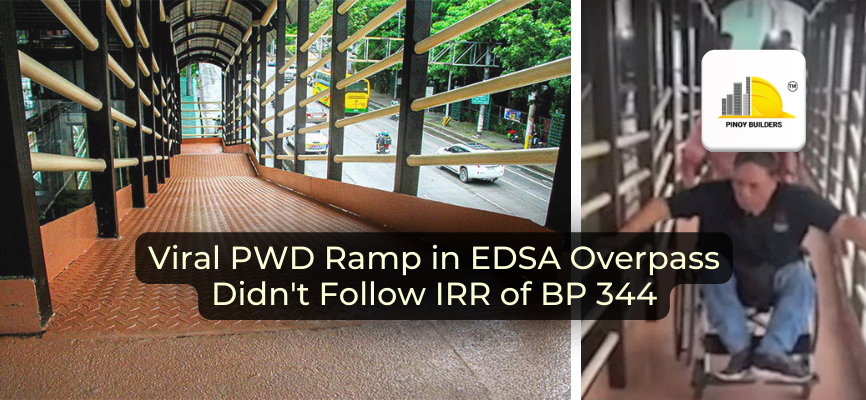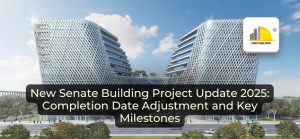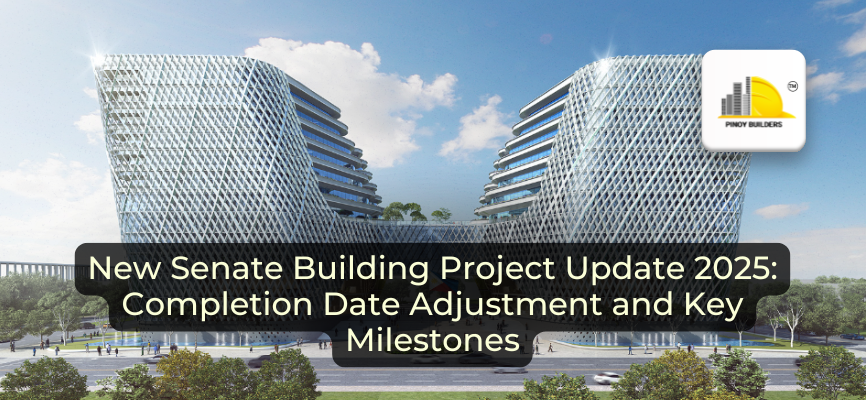Quezon City, Philippines – A wheelchair ramp at the EDSA-Philam station has gone viral on social media, drawing widespread public criticism for its steep and unsafe design. The ramp, intended to facilitate accessibility for persons with disabilities (PWDs), has been deemed non-compliant with the regulatory standards set by Batas Pambansa 344 (BP 344).

Image from GMA Network
While many netizens made fun of the ramp’s dangerous design, the situation highlighted some of the most consistent issues that Filipino PWDs continue to face in their everyday lives. BP 344 was written to safeguard the safety and welfare of PWDs in the country, yet government projects like the now-infamous QC footbridge ramp still make it out of the blueprints. Sen. Grace Poe criticized the project, calling it a waste of the taxpayer’s money while putting the lives of Filipino PWDs at the same time.
“It’s exasperating to see millions in taxpayers’ money spent on projects like this that endangers safety and life,” Poe said. “Government agencies must do things right in using public funds, otherwise, we are only wasting money and not serving the sectors who need help.”
Background on BP 344
BP 344, also known as the Accessibility Law, mandates that public facilities be designed to accommodate PWDs. The law specifies that ramps should have a maximum gradient of 1:12 and a maximum length of six meters to ensure usability and safety. This regulation aims to promote mobility and independence for PWDs in public spaces.
MMDA’s Response
The Metropolitan Manila Development Authority (MMDA) responded to the controversy, admitting that the ramp’s design did not adhere to BP 344 standards. The MMDA attributed the issue to height restrictions imposed by the Metro Rail Transit (MRT), which influenced the ramp’s construction.

Image from GMA Network
“Hindi ito perpektong disenyo lalo na sa mga naka wheelchair pero malaking tulong pa rin ito para sa mga senior citizens, buntis at ibang PWDs sa halip na umakyat gamit ang hagdan,” MMDA said in its statement.
In light of the public’s reaction, the MMDA announced plans to deploy personnel at the ramp to assist PWDs who might have difficulty navigating it.
A Safer Philippines For All
Meanwhile, the viral wheelchair ramp at EDSA-Philam station has sparked important discussions about accessible infrastructure in the Philippines. The public outcry underscores the necessity of strict compliance with BP 344 to protect the rights and safety of PWDs. Authorities are urged to prioritize developing and maintaining accessible facilities, ensuring that all public infrastructure meets the required standards. This incident serves as a call to action for improving accessibility provisions nationwide.








